
Fairy Tail: Dungeons – Review
A licensed video game based on a popular anime series? You’d be forgiven for thinking that Fairy Tail: Dungeons was the latest release from Bandai Namco since they’ve been churning out games based on everything from Dragonball to That Time I was Reincarnated as a Slime. Surprisingly though, Fairy Tail: Dungeons arrives courtesy of a completely different publisher, Kodansha. It’s a name that might ring a bell, as they’ve been in the publishing game for a century now, although they are better known for manga than for video games. In fact, they’re behind the publication of the Fairy Tail manga too, as well as previous Fairy Tail video games. As you can tell from our review of the latter, they’ve set a pretty high bar. Can Fairy Tail: Dungeons clear it?
Story
Despite having a popular anime and manga series to draw from, Fairy Tail: Dungeons is surprisingly light on story. That may sound disappointing to long-time fans of the series who were hoping to find a new side arc here. However, if you’re unfamiliar with these characters, then the barebones story becomes a blessing in disguise, as no prior knowledge is needed to enjoy Fairy Tail: Dungeons for what it is. Unlike in SPY X ANYA or Jujutsu Kaisen, we felt right at home here immediately, despite never having watched an episode of Fairy Tail. It also means we can summarize the plot in a few sentences: A dungeon has appeared underneath the Fairy Tail Guild Hall, and someone named Arthur has gone missing. It’s up to the series’ protagonist Natsu to venture into this mysterious dungeon and bring back the victim. Unfortunately, the dungeon has the nasty side effect of causing amnesia to anyone who ventures inside, resulting in Natsu forgetting his abilities. As we said, it’s not the most intricate plot, but it’s more than adequate for the kind of game that Fairy Tail: Dungeons wants to be.
Graphics
With a beloved anime series behind it, there is a wealth of source material to draw from here. Still, Fairy Tail: Dungeons does its own thing and makes use of gorgeous pixel art instead of the visuals you might’ve expected. The character designs are still recognizable of course, but the decision to go for something different gives the game its own distinct identity. We’re not sure how close the attack animations are to the source material, but they look fantastic and vibrant. We didn’t run into any visual performance issues either, making Fairy Tail: Dungeons a joy to look at.
Sound
If there is one aspect of Fairy Tail: Dungeons that misses the mark, then it’s the absence of voice acting. Most licensed anime games take advantage of the fact that there are already voice actors dedicated to bringing their featured characters to life. We assume this wasn’t done here for budgetary reasons, given the game’s surprisingly low RRP -we’ll get back to that. The lack of voice work is somewhat compensated for by the game’s gorgeous soundtrack, which was composed by Secret of Mana composer Hiroki Kikuta. We don’t know whether the tunes were adapted from the source material, are original material, or a mix of both, but the upbeat OST does a great job of creating a light-hearted atmosphere.
Gameplay
In all honesty, our expectations for Fairy Tail: Dungeons’ gameplay weren’t high. We’ve had to endure quite a few mediocre licensed anime games in the past year, and we assumed that Fairy Tail: Dungeons would fit in nicely with those. We were wrong about this, however. While Fairy Tail: Dungeons’ gameplay doesn’t bring anything new to the table with its rogue-like deck-building gameplay, it’s surprisingly great at what it does. And most important of all: it’s an actual fun take on the genre. The formula is familiar: taking control of Natsu (or one of the characters you unlock down the line), you explore branching paths in the dungeon, take on enemies in card battles, and hopefully make it to a boss battle. Along the way, you pick up new cards, items, and currency to buy buffs, constantly improving your deck. When you inevitably bite the dust, you get up and do it all over again. As far as rogue-likes go, Fairy Tail: Dungeons is on the easier side, and very, very accessible. While there is plenty for genre veterans to sink their teeth into, we’d say that this is a fantastic entry point for anyone wanting to give this kind of game a try.
The success of Fairy Tail: Dungeons’ card battles lies in how elegant and easy to understand everything is. There are three types of cards: attack, defense, and support. Support cards typically provide buffs and effects, like healing your character. Cards can also be linked together through magic chains, which provide bonus effects. Playing a card costs action points, represented here by diamonds. Each turn you normally draw four cards and gain three diamonds, although there are ways these numbers can be adjusted. Better cards typically cost more to play, so you need to know when it is best to play your big hitters or when it is more effective to play buffs or debuffs. There is more nuance to Fairy Tail: Dungeons’ gameplay, as each of the playable characters has their own unique deck as well as an ability tree that you gradually unlock as you progress, but the core experience largely remains the same throughout. Even so, there is plenty of variety here and even more customizability, allowing you to tailor your deck to something you can call your own. Eventually, you’ll even be able to play team battles, where you can combine the decks and abilities of different characters, further opening up Fairy Tail: Dungeons’ strategic gameplay.
As you can imagine, there is plenty of replayability here, but in all honesty, the game needs it. For as enjoyable of a romp Fairy Tail: Dungeons is, it’s also very short. The main story mode can be cleared over the course of a single evening, clocking in at roughly five hours. That may seem short, but not only are higher difficulties unlocked upon completion, but the game is also priced according to its short length. With an RRP of €13.99, you’re getting a solid, if unremarkable rogue-like deck builder that can stand on its own legs regardless of the license. That the game has a Fairy Tail coat of paint on it is simply the icing on the cake for fans of the series.
Conclusion
While we don’t expect Fairy Tail: Dungeons to top anyone’s game of the year list, it is a surprisingly competent rogue-like deck builder. The game strikes the right balance between simplicity and strategic depth. Even if you’re not a fan of the series, you’ll have a good time with what Fairy Tail: Dungeons has to offer, especially if you’ve been looking for an accessible way to dip your toes into the genre. This is the game that Asterix & Obelix: Heroes should have been.
1 Comment
Leave a Reply
You must be logged in to post a comment.

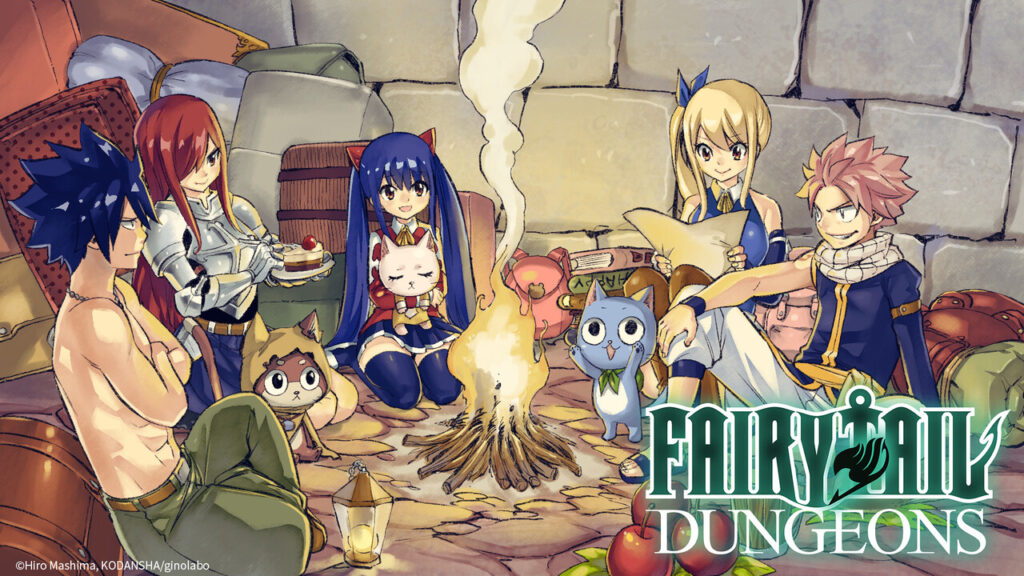
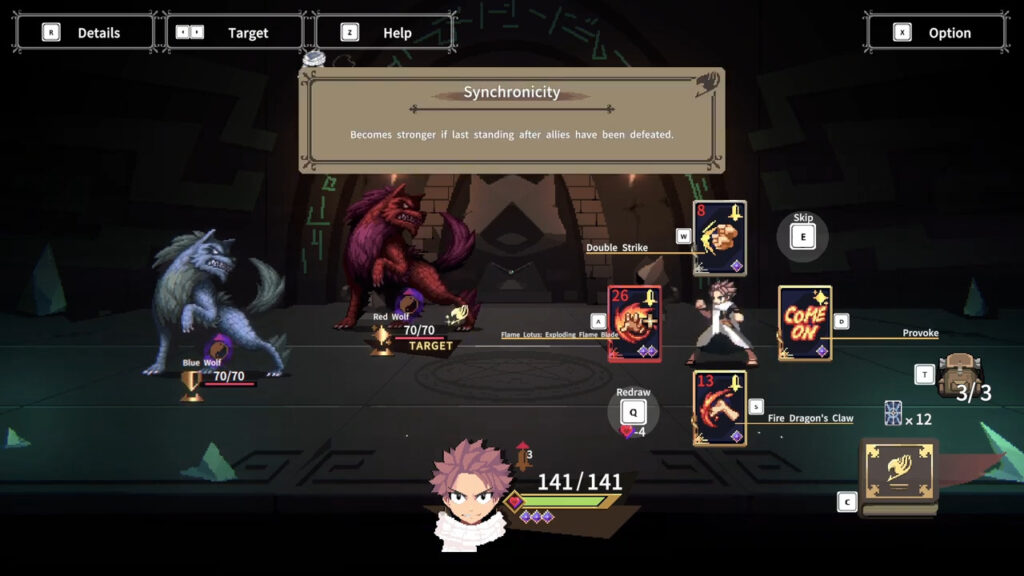
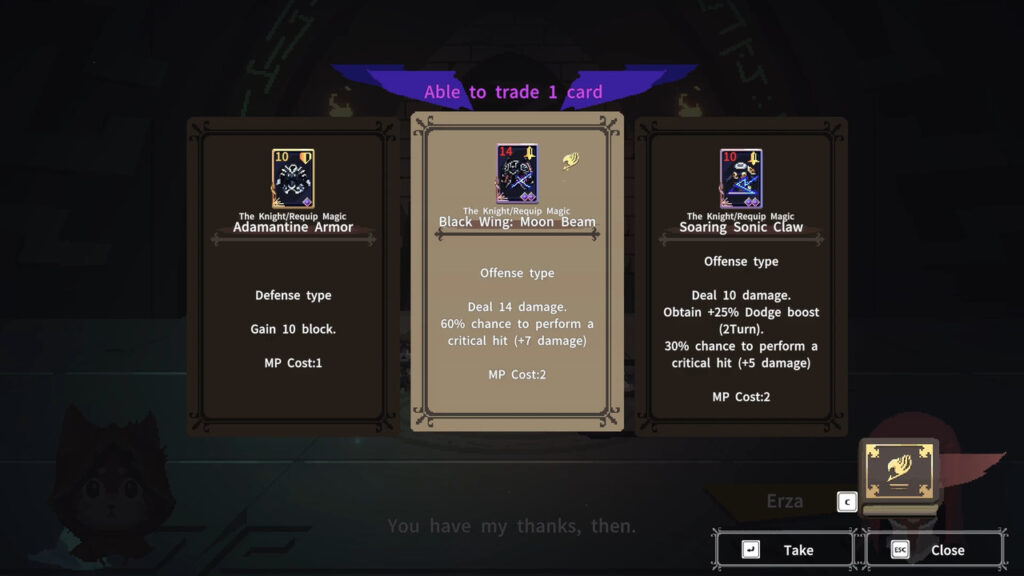
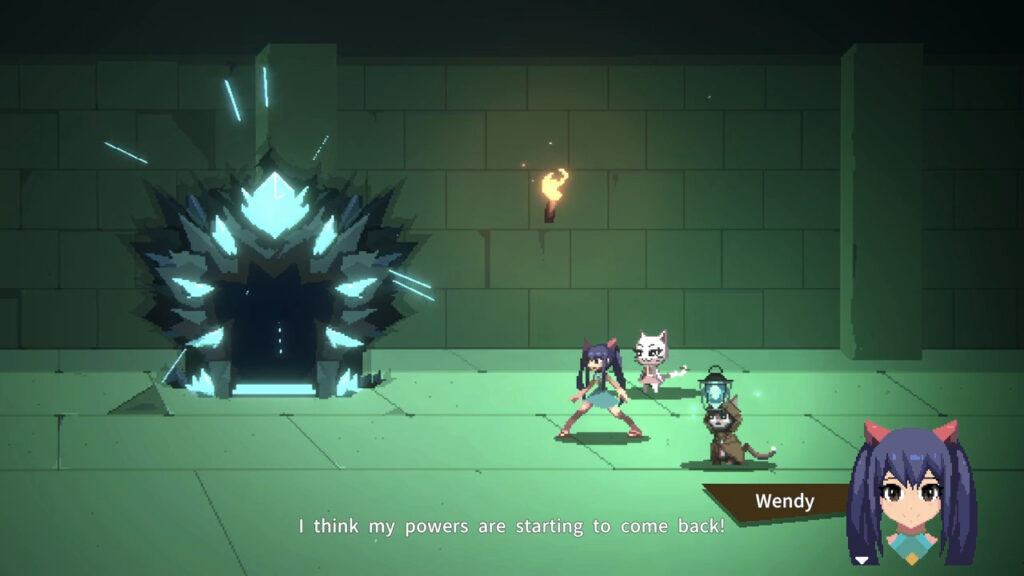



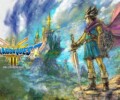
[…] Havoc might be just the game you have been looking for. This game brings all your favorite Fairy Tail characters together, and you can use them in a 2v2 volleyball match using their signature abilities […]